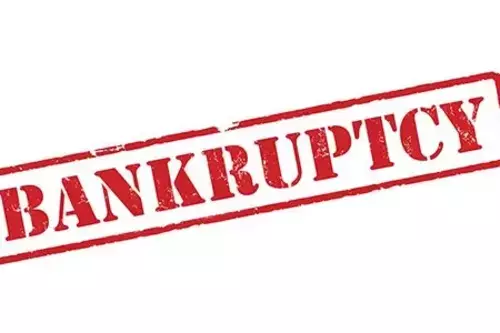Admin • Sept 05, 2017

Owing money to the IRS is not the best position to be in. The IRS can come after people who owe back taxes, and they will. If you are struggling with tax debts you cannot pay, you should consider visiting a bankruptcy lawyer. Bankruptcy can help with tax debts in several ways, but there are a few important things to understand about this before you proceed.
Tax Debt Is Not Always Dischargeable
One of the first things a lawyer will talk to you about is the types of debts you have. Bankruptcy is great for eliminating certain types, but it is not always effective for eliminating priority debts. Priority debts are debts that typically require repayment, and IRS debt falls into this category. This does not mean that bankruptcy will never discharge tax debt; however, it does mean that it is harder to eliminate this type of debt compared to other types of debts.
There are two main branches of bankruptcy you should understand. Chapter 7 is the branch that discharges debts that qualify, while Chapter 13 is the branch of bankruptcy that requires repayment. Because of this difference, you will have a better chance of getting rid of the tax debt if you use Chapter 7.
Chapter 7 Is Not Always an Option
After learning this key difference, anyone that owes IRS tax debt may want to file Chapter 7 to eliminate the debt. The problem with this is that not everyone qualifies for Chapter 7, and there are times when Chapter 13 is actually a better option.
To qualify for Chapter 7, you must earn less money than the median income in your state, and this rule often disqualifies high earners from filing this branch of bankruptcy. If your income is less than this, you will qualify for Chapter 7; however, that does not guarantee that it will discharge the tax debt you have.
If your tax debt does not qualify for a discharge, filing for Chapter 13 might solve the problem for you in a different way. Through Chapter 13, you can receive several benefits.
1. An automatic stay
This stops the IRS from coming after you for the debt you owe, and it lasts for the length of your repayment plan.
2. No more wage garnishment
If the IRS is currently garnishing your wages for the debt, filing for Chapter 13 will stop this during your repayment plan.
3. Affordable payments
Chapter 13 also allows you time to repay the debt owed. This gives you time to repay the debt, instead of owing it all right away.
If you prefer Chapter 7, the tax debt you owe must qualify for a discharge. For this to happen, the debt must be three years old or older, you must be current on filing your tax returns, and the IRS must have assessed the debt at least 240 days ago. If you meet these factors, there is a good chance that bankruptcy will discharge the debt, leaving you owing nothing.
One Problem You May Encounter
There is one other important detail to know before rushing into bankruptcy. If the IRS placed a lien on property you own for the debt in question, you will still have to pay the debt to get the lien released. There is no way to get a federal tax lien released off a property without repaying it.
This will not be a problem if you never plan on selling your home, but it will eventually become a problem for the person that buys your house.
Bankruptcy is a legal tool that is helpful for people who owe money on all kinds of debts. If you are tired of the IRS coming after you for the money you owe, you should find out if bankruptcy is right for you. You can do this by contacting Brace W. Luquire. Our law firm helps people who are struggling with debts, and we can help you too.
Content, including images, displayed on this website is protected by copyright laws. Downloading, republication, retransmission
or reproduction of content on this website is strictly prohibited. Terms of Use | Privacy Policy